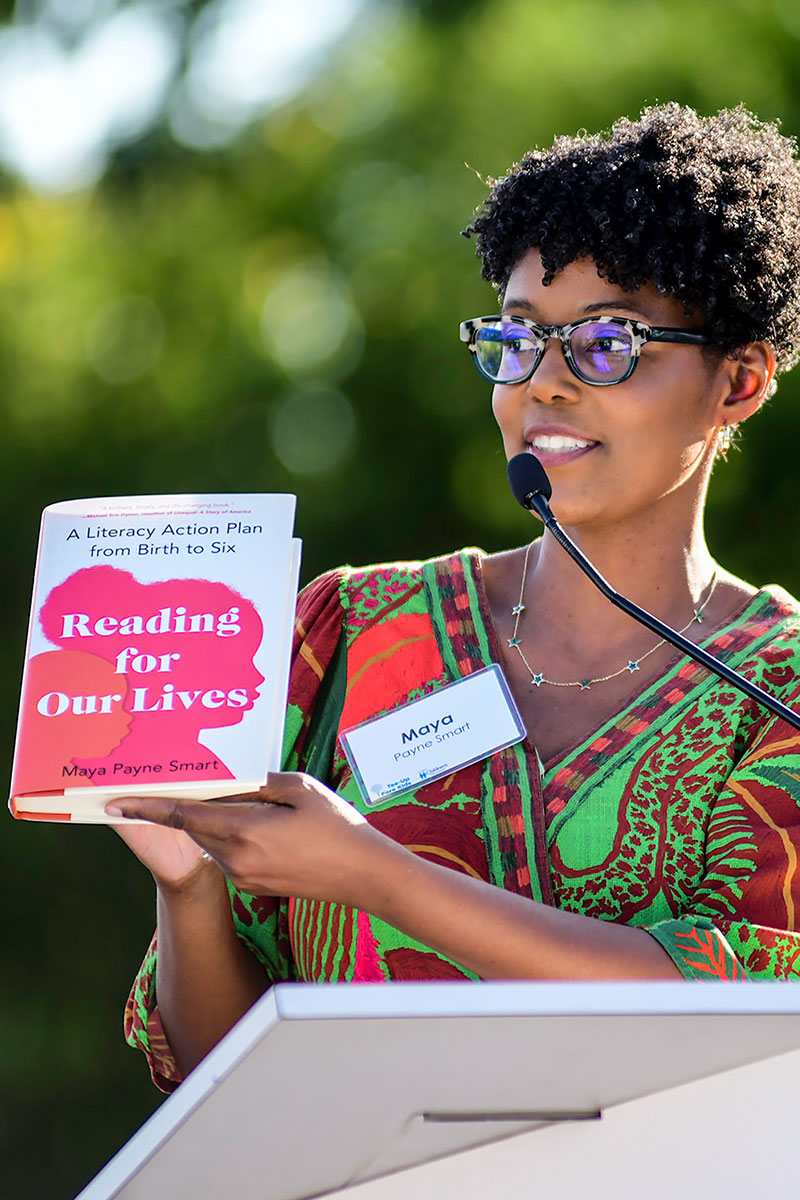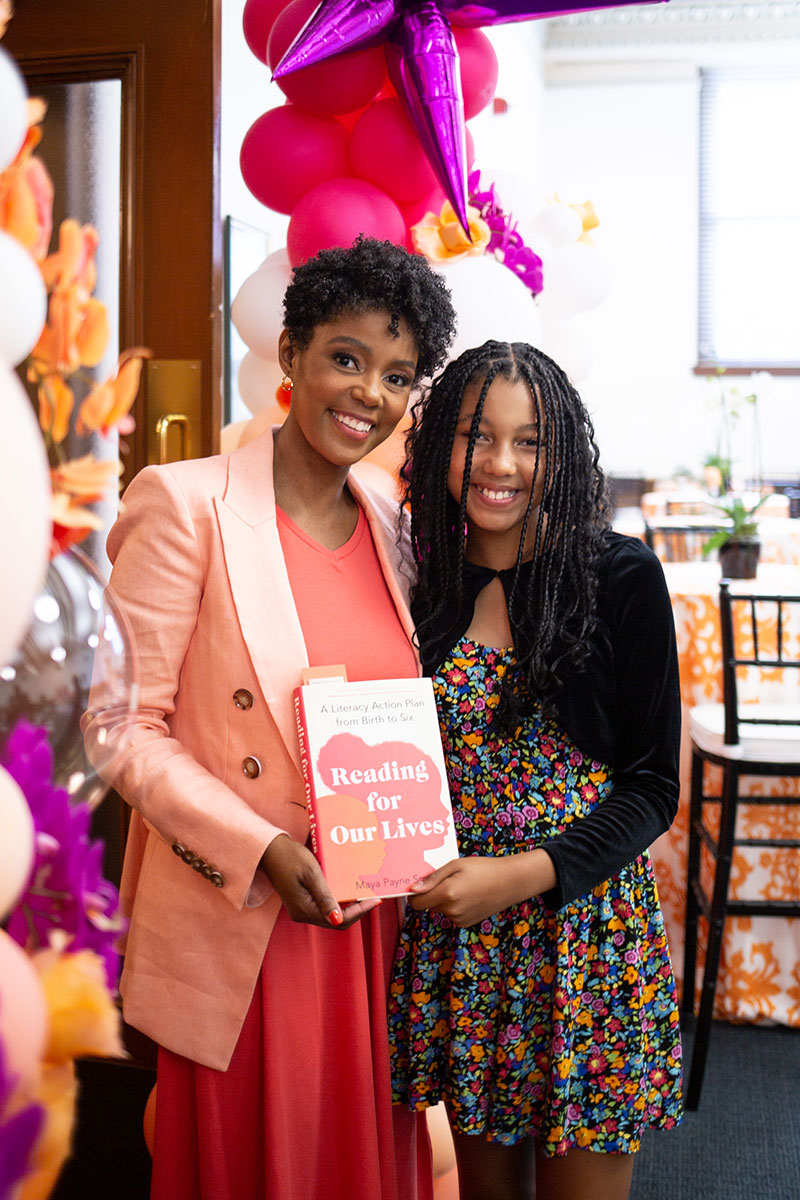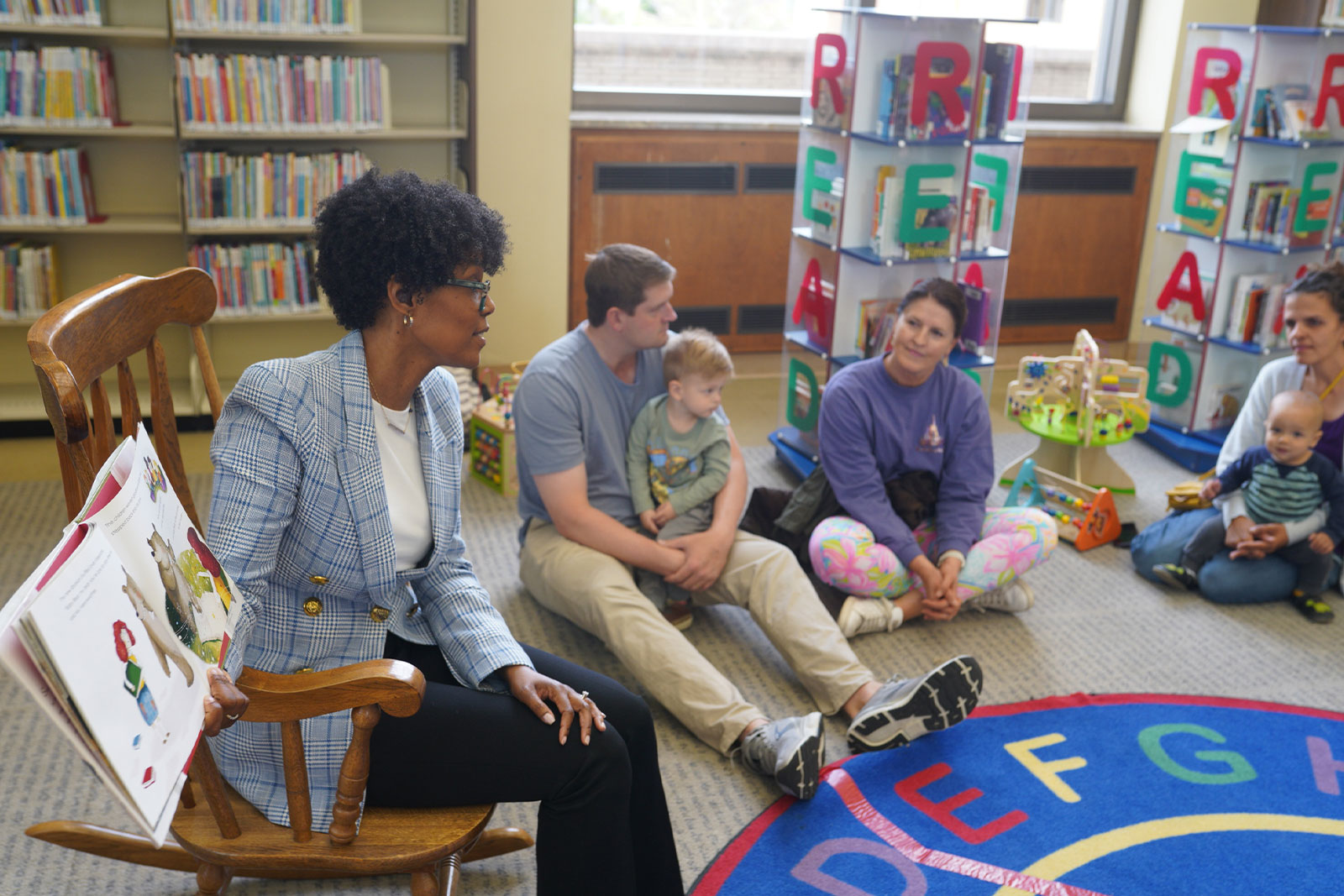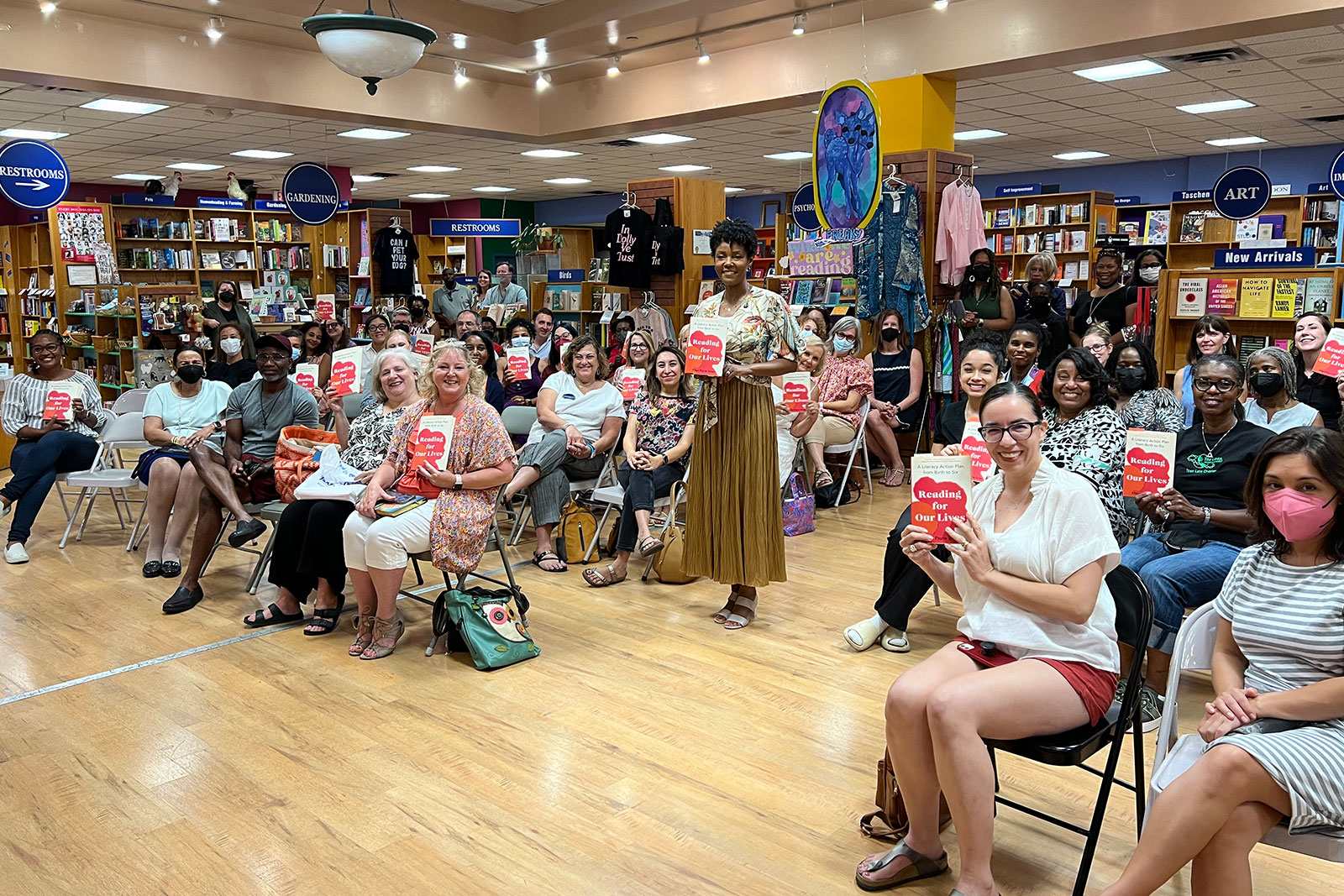Maya Smart is a literacy advocate and is starting the conversation about literacy for young readers. As a parent educator and author of Reading for our lives: An action plan for literacy from birth to six yearsShe is committed to empowering parents to be their children’s first and most influential teachers. Her work is driven by a passion to address the critical early years of reading development and to ensure that every child has the opportunity to become a confident and fluent reader. Maya holds a master’s degree in journalism from the Medill School of Northwestern University and a bachelor’s degree in social sciences with honors from Harvard University. She is a lecturer in educational policy and leadership in the College of Education at Marquette University.

Maya is speaking for Children’s Wisconsin Hospital, “an organization that understands the critical importance of early literacy and its impact on long-term health and well-being,” she says. “I travel coast to coast sharing why reading is important and how we are all involved in promoting literacy for all.” Photo courtesy of Children’s Wisconsin.

“I am named after Maya Angelou and my husband and I named our daughter after Zora Neale Hurston. My book, Reading for our livesis dedicated to our Zora,” says Maya; photography by Colleen Kubiak.
Your mission is to help parents raise literate children. When did this become your passion?
When my daughter was very young, I became passionate about helping parents raise readers. I had read heartbreaking articles about the reading disparities between black and white children, Hispanic and white children, and between low-income and high-income households. I knew that these disparities reflected the average reading performance of the groups—not some innate difference in children’s ability to succeed. I took the dire statistics as a personal challenge to research what drives reading success and to share my knowledge so that all parents of all children are well-informed to raise their readers. We cannot rely on schools alone to teach reading, because the necessary brain infrastructure develops largely in the first few years of a child’s life, and it is during this time that the seeds of reading motivation are planted. More than a decade later, I am still working on the subject, sharing my findings in blog posts, newsletters, speeches, and my book, The 40 Years of Reading. Reading for our lives: An action plan for literacy from birth to age six.
What is your earliest memory of discovering the joy of reading?
My first experience with the freedom, excitement, and discovery of books came as a young child, wandering the halls of the Ayres Branch Library in my hometown of Akron, Ohio. For me, the brick library, a former apartment building, on West Market Street was a cozy oasis. It was small enough and the librarians familiar enough (one lived on my block) that I could immediately separate myself from my mother, turn straight into the children’s section, and wander the shelves to select my next read. The autonomy of browsing, selecting, and reading in the library was a new experience at that age. This power of self-determination, along with good reading skills, made it easy for me to fall in love with books. In any other environment, my options and actions felt limited and prescribed. But in the library, I felt independent. And with books, I could go anywhere—and I did.

For me, intensive reading means the luxury of being able to spend long periods of time undisturbed with my books and the freedom to circle, underline and scribble in the margins. It also means being able to reflect a lot and concentrate to develop my own understanding and ideas.
What books are particularly special to you when you share them with your daughter/family?
My daughter is now a teenager and a proficient, fluent reader who can tackle long novels and complex academic texts on her own. But I still tend to share picture books with her. The combination of elegant prose and beautiful illustrations still gives her the affirmation, courage, and conviction that I value in books, even as she gets older. I recently bought her a copy of Black Gold by Laura Obuobi, illustrated by London Ladd. The story of the creation of a child of the universe – “rich, dark and full of life” – reads like an answered prayer.
If kids are swimming in stories, reading may be able to give screen time a chance.
We love how you say you split your time between “intense reading and slow writing.” What does intense reading look like for you personally?
We live in an age where time flies by and we don’t have time for leisure or the opportunity to simply sit and rest because of the pressures of work and home. I protest against this mindset every day by starting my morning with a book and a cup of Richmond Blend Tea from Rostov’s Coffee and Tea in Virginia. This has been my ritual for years, across state lines and stages of life. For me, deep reading means the luxury of spending long periods of uninterrupted time with my books and the freedom to circle, underline, and doodle in the margins. It also means the fullness of reflection and the privilege of concentration to develop my own insights and ideas.

What important strategies can parents use in their busy lives to encourage their children’s love of reading?
Parents can encourage their children’s love of reading in two ways. First, we should make sure children have the language and literacy skills they need to read fluently and comprehensibly. Because let’s face it, reading just isn’t fun when you’re struggling with every word. Second, and this is the fun part, parents should bombard their children with a steady stream of the most interesting, exciting, and curious books they can find to get them to spend more time reading. If kids are swimming in stories, maybe reading will stand a chance against screen time.


